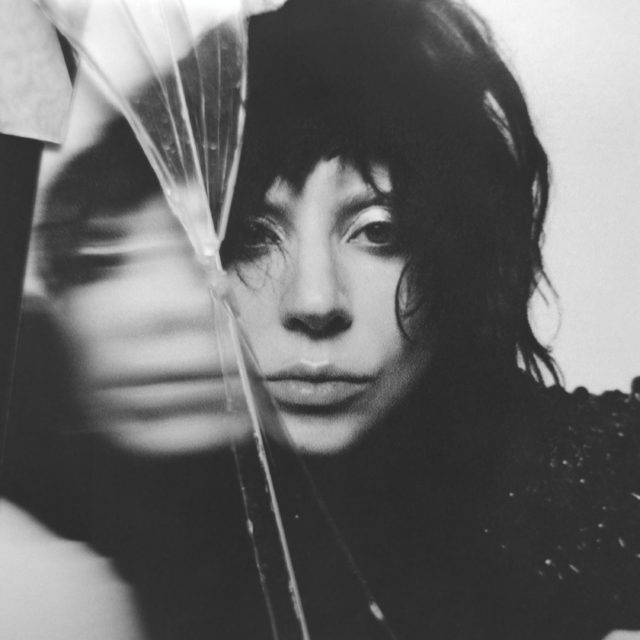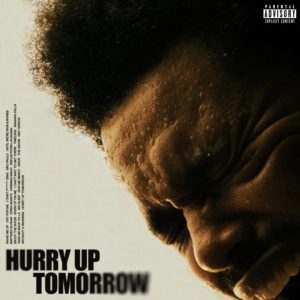This post was updated March 9 at 7:47 p.m.
Lady Gaga is back in frenetic but fantastic form with her electrifying new LP.
The 14-time Grammy winner released her latest album, “MAYHEM,” on Friday. The 14-track project arrives as the singer-songwriter’s seventh solo studio album, almost five years after 2020’s “Chromatica.” In the intervening time, Gaga’s musical output has included the remix project “Dawn Of Chromatica,” a Grammy-winning collaboration album with Tony Bennett, work on the soundtracks of the films “Top Gun: Maverick” and “Joker: Folie à Deux” and her 2024 release “Harlequin.” Now back with a more traditional album rollout to accompany “MAYHEM,” Gaga has unleashed a 53-minute body of work that is undoubtedly her finest record in more than a decade – an artistic achievement made possible by returning to the avant-garde dance tracks and unconventional lyrics that made her a superstar.
Released in October, the opening track “Disease” kicks off the album with ferocious intensity, as its percussive production, dark lyrics and melismatic refrains thrust listeners squarely into the electro-pop soundscape of Gaga’s earlier work on 2009’s “The Fame Monster” and 2011’s “Born This Way.” The pounding production features clashing and clinking background noises that resemble the sound of chains, a touch elevating the track’s infectious hooks.
The project’s latest single and second track, “Abracadabra,” evokes the chaotic four-on-the-floor frivolity of past hits like “Judas” with its unrelenting pace and dance appeals. Even when the song’s breakneck tempo briefly slows on the bridge, Gaga’s lyrics are rooted to the dance floor as she sings, “Phantom of the dance floor, come to me / Sing for me a sinful melody.” Although the chorus might sound like gibberish, it has the classic Gaga flair of enduring classics such as “Bad Romance” to remain a standout favorite from “MAYHEM” for years to come.
[Related: Album review: The Lumineers’ timely lyrics shine on ‘Automatic’ despite mediocre instrumentation]
Another highlight arrives a few tracks later with the Gesaffelstein collaboration “Killah,” which is one of the raunchiest songs of Gaga’s career. Instead of applying the cheekiness of “LoveGame” or the directness of “Sexxx Dreams,” Gaga’s vocal performance strikes a balance between empowerment and eroticism with naughty lines such as “Gonna make the curtains cream, believe it / Gonna make the ceilin’ shake for me.” The next track, the incandescent funk-infused “Zombieboy,” produces another knockout success. With a heavenly bassline and peppy cadence similar to Jessie Ware’s “Ooh La La,” Gaga sounds as if she is having raucous fun delivering playful lyrics such as “So put your paws all over me, you zombieboy.”
The album’s best track might be the addictively catchy banger “Don’t Call Tonight.” Not only does the sublime disco-esque guitar effortlessly replicate the music of Nile Rodgers and Daft Punk, but the exhilarating chorus has irresistible singalong potential. If Gaga and her team decide to promote another single from this project, “Don’t Call Tonight” is practically begging for the opportunity to become a club-rocking earworm in 2025 and beyond. The uplifting tone of the track and its embrace of Gaga’s independence culminates in a groovier cousin to Miley Cyrus’ “Flowers.”
As ideal as it would be for all of the tracks on “MAYHEM” to be as thrilling and euphoric as “Don’t Call Tonight,” some of the songs lack memorability and feel reductive of Gaga’s past work. “LoveDrug” is one such ditty, where the lyrics about dancing through pain touch upon similar themes to much of “Chromatica” in a stagnant manner. Elsewhere, the synth-pop of “How Bad Do U Want Me” easily blends in when surrounded by more energetic songs. That said, the delivery, pacing and quirky lyrical details in the verses of “How Bad Do U Want Me” are curiously evocative of Taylor Swift’s 2019 “Lover” album – and fans quickly speculated on social media that Swift contributed background vocals to the song.
If the album has a song worth skipping, it is probably the fourth track “Perfect Celebrity.” For her entire mainstream career – dating back to her 2008 debut with “The Fame” – Gaga has addressed her relationship with stardom in an evolving, often thought-provoking way. Unfortunately, “Perfect Celebrity” lacks the nuance or intentional irony Gaga is capable of, and the song’s punk edge would probably be better actualized by an artist like Avril Lavigne.
[Related: Album review: The Weeknd awaits the next day in his 6th studio album, “Hurry Up Tomorrow”]
The two most blatantly romantic tracks on the album also fall short. “Vanish Into You” is one of the most syrupy songs of Gaga’s career, with especially dry lyrics such as “It was cold in the summertime / We were happy just to be alive.” Gaga has said “Blade Of Grass” was written about her fiancé, Michael Polansky, but the strained vocals and heavy-handed production fail to paint an expressive, emotional picture as the artist has so effortlessly done on songs such as “Yoü And I” and “Always Remember Us This Way.”
Although the inclusion of Gaga’s Grammy-winning, chart-topping Bruno Mars collaboration “Die With A Smile” does not fit the vibe of the majority of “MAYHEM,” the song manages to act as a surprisingly effective conclusion to the album. Placed directly after “Blade Of Grass,” the soft acoustic guitar and Mars’ croons help close the album on its most sweet, tender note. Despite lacking the excitement and dynamism of other tracks on the album, “Die With A Smile” earns its place, as it is sung with the same level of sincerity as the more danceable tunes.
In all of its unbridled exuberance, “MAYHEM” may not be as concise as some of Gaga’s past albums, but the trove of throwback-adjacent bops found on its tracklist make the release a must-listen addition to Gaga’s discography. In particular, the length of the songs – which are all more than three minutes – compared to shorter tracks on “Chromatica” give Gaga’s hooks the space to develop into replay-worthy anthems on par with her best work. A few weeks shy of her 39th birthday, Gaga seems to have struck a precise balance between evolution and referencing her own past, offering “MAYHEM” as a sign of her enduring cultural and musical relevance.
With such confidence in her sound, Gaga has pulled off the seemingly insurmountable task of effectively delving into nostalgia while still pushing her music forward.








Comments are closed.